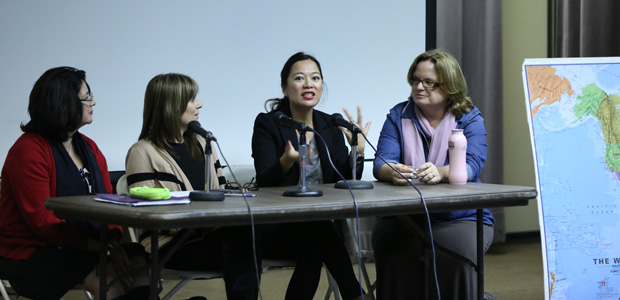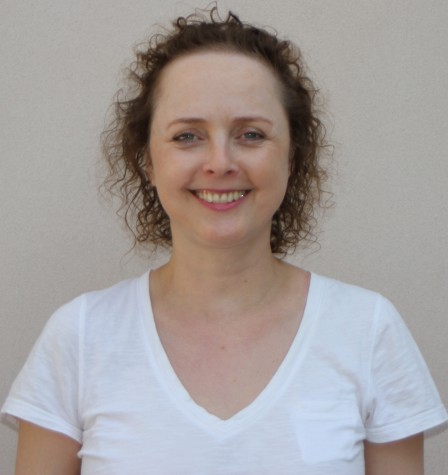“Follow your dream despite the challenges” was the resounding message that permeated the Choices, Challenges and Compromises panel discussion on March 5. The event was part of the GCC line-up for Women’s History Month organized by Peggy Renner.
The panel consisted of Ramona Barrio-Sotillo, the division chair of student services; Andra Hoffman Verstraete, director of governmental and external relations; Hazel Ramos, history professor, and Elizabeth Kronbeck, social science, history and ethnic studies professor.
The largely female audience was welcomed into Kreider Hall by the Peggy Lee song, “I’m a Woman.” The classic tune set the tone of the first question posed to the panel asking what challenges the panel members had experienced while pursuing their education. All four women had faced some tough family opposition in their choices to become educated women.
Verstraete shared how her feminist mother, who had participated in a protest where she burned her bra, could not reconcile her daughter’s choice to return to school as a single mother.
“My job was to stay at home and bake cookies,” Verstraete said.
The subject of how to balance an education, full time work and be parenting was a hot topic. A mother of two, Ramos spoke of her concern that she was not physically as up to par as she would like to be.
“I can’t spit out words a hundred miles an hour like I usually do, I lose my train of thought,” said Ramos “The sleep deprivation from looking after a baby exacerbates that.”
The depiction of women in the media was cause for concern
for the panel. When Verstraete ran for state assembly last year, she discovered that the media reacted to men and women differently.
“We’re almost going backwards,” she said. “Nobody asks a man how he is going to balance family and work. A woman is judged differently.”
According to the United States Census, women make up more than 50.8 percent of the population, yet only make 77 cents for every dollar men make.
The panel also addressed how the second-wave feminist movement’s message that women can have it all — a career and a family — was a fallacy. The movement began in the 1960s and focused on gender equality.
Kronbeck said that the movement failed to acknowledge the exhaustion that comes with having to juggle work, marriage and children.
“The joke in my house is that I picked a master’s degree over a second child,” she said.
Kronbeck said that most people do not even know the real meaning of the word “feminism,” the true definition of which is the social, political and economic equality of the sexes. When asked about the new wave of feminism, she replied that the problem with the third wave feminist movement is its focus on sex as a form of empowerment over men.
“The problem with that is that as soon as you lose your beauty, you lose your power,” she said.
Audience questions focused on what advice the panel members would give to future generations. All seemed to agree, the most important advice they could impart was to find what it is that makes you happy and follow your heart.
It might not mean living in a mansion and having a BMW parked in the driveway but capitalism isn’t the be all and end all to a satisfying life.
“Take control of your life, and make the kind of choices you want for yourself,” said Verstraete.
Women’s History Month events continue through April 2.


